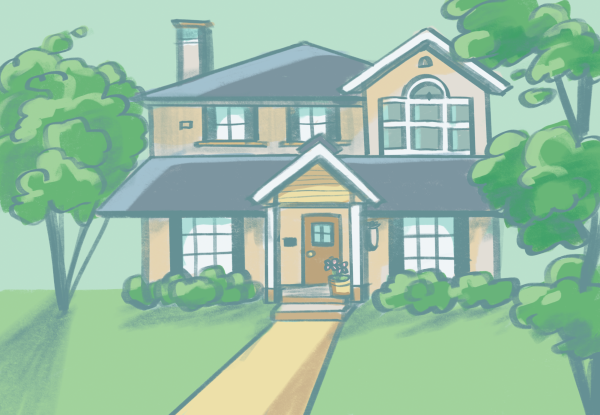Senioritis strikes back
April 9, 2019
After four grueling years of non stop work, students feel the effects of graduation looming in the near future. They can see life past high school coming up, and for many it looks a lot better than dealing with busy-work until graduation. Senior year often brings with it senioritis, characterized by students’ lack of motivation during their final year. Grades and attendance may start to drop as seniors secure their futures in college and feel the burden of tedious school work lift.
Senior Zoe Taulli said she accepts senioritis because she wants to focus on spending time with her friends and experiencing new things before going to college. She said students have to break rules and expose themselves to new areas before embarking on their path in life through college and to their desired profession, often through giving in to senioritis.
“There are so many things that I know colleges would like to see me do that I don’t have time to do,” Taulli said. “So this semester, I’m just going to take time for myself and I’m going to go out and do those things. I see stories of kids who are prodigies or make a difference when they’re young and I want to be that person. I want to grow up and make a difference. But I can’t because I’m sitting and filling out some repetitive homework sheet that is useless and I will never use this knowledge again in my life.”
Senior Connor Fierro said school is a distraction from life, and that senioritis improves his lifestyle because he gets to spend his time how he likes. Fierro, who is planning to join the U.S. Marine Corps after graduation, said there is a minimum amount of effort still required to keep himself afloat.
“I’m already at LASA, so I’ve already proven that I’m at least somewhat intelligent,” Fierro said. “And I don’t really feel the need to keep up with the four year rabbit race in the last year because we already have all our grades.”
Senior Danika Luo said that while every senior is bound to feel senioritis at one point or another, it is still important to do school work. Her senioritis is caused by her unwillingness to try as hard after all her years of dedication to school work and studying at LASA.
“[Senioritis] definitely makes life more enjoyable because you have like less stress and more fun,” Luo said. “I’ve definitely hung out with friends a lot more senior year, but it’s also bad because my grades are going down.”
Senior Sergio Flores said in the second semester, the majority of seniors have created a safety net after being accepted to a college. After reaching this goal, seniors begin to slow down on work. Flores said that seniors’ motivation wanes after being accepted to a college because it demonstrates the ultimate goal of doing well in high school.
“I think it’s inescapable,” Flores said. “I think eventually you hit a point where you’re just so burned out that you don’t want to do anything at all anymore. I think the people that say, ‘just keep going,’ I think that’s a fair statement, but also I’ve been going for over a decade.”
Luo also thinks seniors should not let their senioritis get too far, causing them to skip school or fail. When students start feeling more senioritis, Flores recommended they should remember that scholarships still requires students to submit their GPA. By letting grades drop too low, they could inadvertently cause colleges to rescind their admissions. Taulli said she tries to get enough sleep and do the bare minimum, even if that means getting straight C’s, because she believes that managing to graduate and going to college is the most important.
“Take it one assignment at a time,” Luo said. “Even if you end up procrastinating the night before, don’t just save it for the day of, I would say get through as much as you can, still try and turn everything in.”
While failing a class comes with the risk of not graduating, Flores found that he can relax more in the second semester. He said seniors should do whatever makes them feel good, whether it’s taking a step back from school work, or keeping up with the workload.
“Even if you think it won’t happen to you, it will happen to you, so you should prepare,” Flores said. “You should have strategies that you employed in past years that help you work, so you have them for the future when you need them desperately.”
Taulli thinks there is not a lot students can do to avoid senioritis. Fierro suggested that LASA could adopt a system similar to Bowie High School’s where if seniors have under a certain number of absences, they are exempted from finals. He said the first semester workload should be lessened, so there’s more time to work on college applications. While some people believe senioritis can afflict more than just seniors, Taulli does not think that juniors and underclassmen can understand the lack of motivation and how purposeless work feels during senior year.
“The things we’re learning at this point in school aren’t necessarily the most important things, they’re not skills we’re going to need,” Taulli said. “I don’t need to know war poems in whatever degree I get. I think teachers need to admit and embrace that.”







